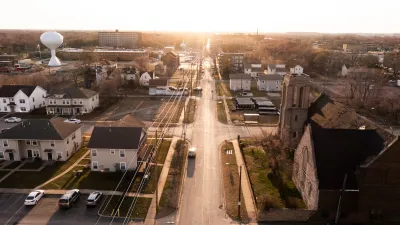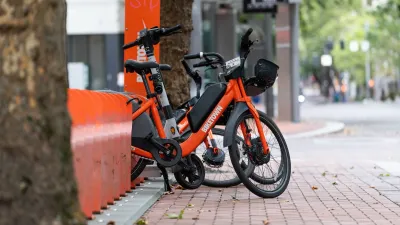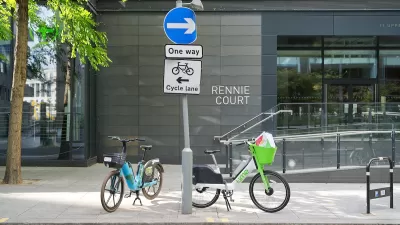Across the United States, bike-share systems have struggled to provide access to those with fewer transportation options. Darren Buck looks at what some cities are doing to expand their reach.
Despite its notable successes, many forget that bike-sharing is still a relatively new phenomenon in the Unites States. As cities experiment with different models for funding their programs and expanding their bicycle infrastructure, bike-share systems in cities like Denver and Chicago have also struggled with the question of how to reach all segments of their population.
To better understand how different cities are working to meet this challenge, graduate student Darren Buck "asked managers of current and planned North American bike sharing systems what they have done to increase access to bike sharing for low-income communities, and minority groups disproportionately underrepresented in bicycling."
In a summary of his full paper (PDF), Buck highlights measures that different systems are pursuing to lower barriers to access. Strategies focus on such elements as station siting, community-specific marketing and outreach, financial assistance, membership media, safe places to ride, and overcoming bicycling barriers.
FULL STORY: Bike sharing systems push to reach underrepresented groups

Alabama: Trump Terminates Settlements for Black Communities Harmed By Raw Sewage
Trump deemed the landmark civil rights agreement “illegal DEI and environmental justice policy.”

Study: Maui’s Plan to Convert Vacation Rentals to Long-Term Housing Could Cause Nearly $1 Billion Economic Loss
The plan would reduce visitor accommodation by 25% resulting in 1,900 jobs lost.

Planetizen Federal Action Tracker
A weekly monitor of how Trump’s orders and actions are impacting planners and planning in America.

Wind Energy on the Rise Despite Federal Policy Reversal
The Trump administration is revoking federal support for renewable energy, but demand for new projects continues unabated.

Passengers Flock to Caltrain After Electrification
The new electric trains are running faster and more reliably, leading to strong ridership growth on the Bay Area rail system.

Texas Churches Rally Behind ‘Yes in God’s Back Yard’ Legislation
Religious leaders want the state to reduce zoning regulations to streamline leasing church-owned land to housing developers.
Urban Design for Planners 1: Software Tools
This six-course series explores essential urban design concepts using open source software and equips planners with the tools they need to participate fully in the urban design process.
Planning for Universal Design
Learn the tools for implementing Universal Design in planning regulations.
Caltrans
Smith Gee Studio
Institute for Housing and Urban Development Studies (IHS)
City of Grandview
Harvard GSD Executive Education
Toledo-Lucas County Plan Commissions
Salt Lake City
NYU Wagner Graduate School of Public Service





























